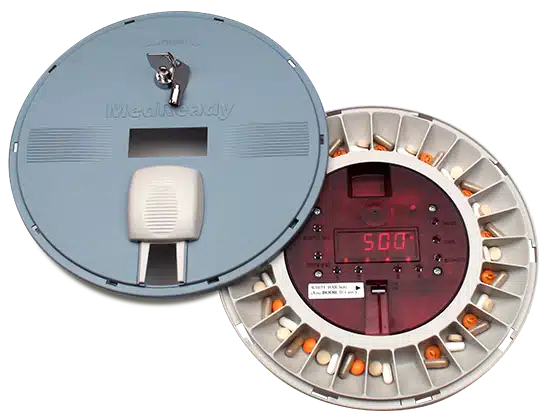Comparing the Best Automated Pill Dispensers for Seniors in 2024
If you or someone you know is struggling to keep track of medication and take it on schedule, some great, automated solutions are available to help. When simply taking the right medication at the right time can improve your quality of life, an automatic medication dispenser makes a tremendous difference.
3 Key Reasons for Automating Medication Management
When someone struggles to maintain their medication schedule, introducing automated medication management can bring these key benefits:
1. Improved Patient Outcomes
Around 75% of Americans have trouble taking medication as directed. 39% of Canadians struggle to follow the correct regime for their medication. Forgetfulness significantly contributes to non-adherence with prescription schedules, a factor automated medication management can mitigate.
For patients, this can lead to improved outcomes. They get the full benefit of their medication when they take it according to directions. They’re more likely to take the correct dosage on the proper timeline.
2. Better Patient Safety
Medication adherence is often called “pharmacy’s biggest problem” in Canada. The Canadian data shows that non-adherence to medication regimes leads to more than 12,500 preventable deaths each year among cardiovascular patients alone. In the US, it’s the fourth-leading cause of accidental deaths.
Automated medication dispensers can be a solution for improving medication adherence and preventing unnecessary deaths. Whether due to taking an incorrect dosage or forgetting to take medication, an automated solution keeps track and leads to better compliance.
3. Better Caregiving Outcomes
Keeping loved ones safe and independent is often a caregiver’s primary goal. Automated medication dispensers can help achieve those things by making medication management quicker and easier for the caregiver and the loved one.
This convenience is crucial. Those cared for can maintain some independence and have a valuable self-esteem boost. It’s a win-win for caregivers and patients.
The 6 Best Medication Dispensers for Seniors With Different Complexities
 Lifeline MedReady Lifeline MedReady | 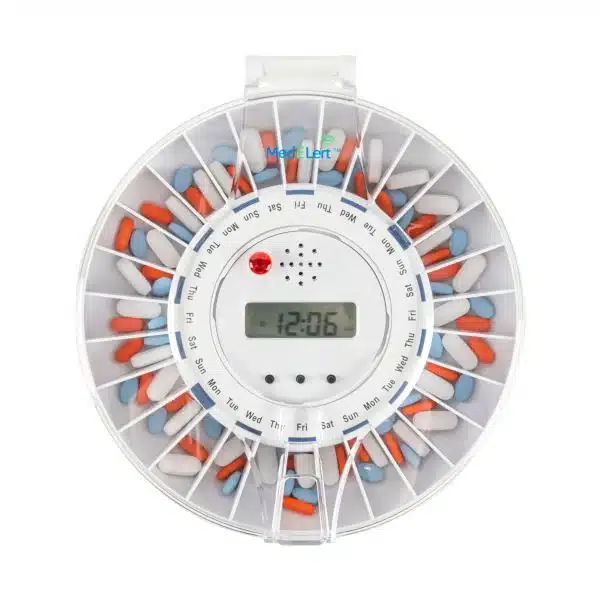 Med-E-Lert Med-E-Lert | 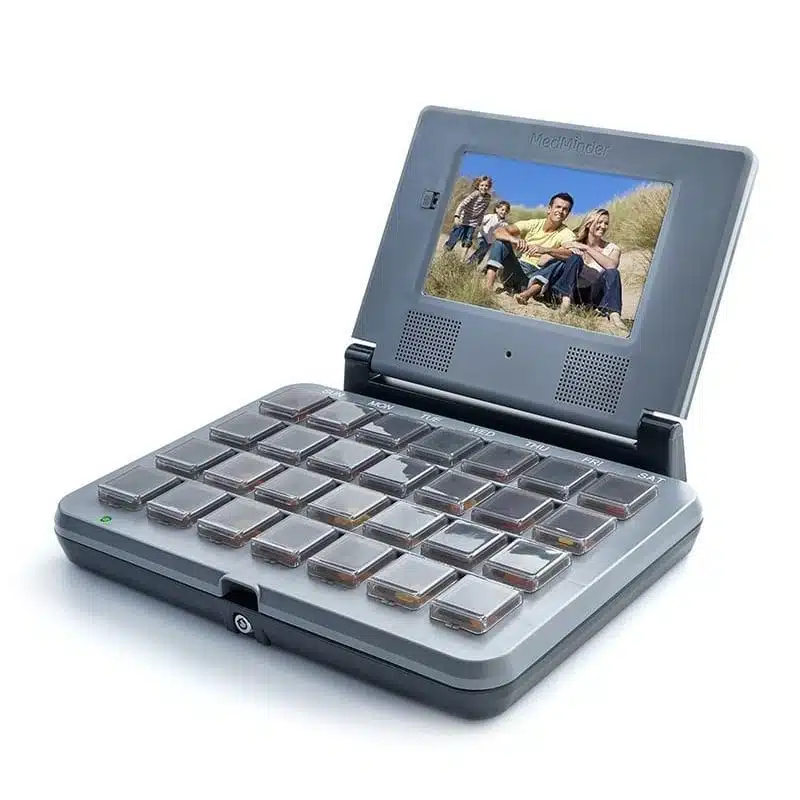 Medminder Medminder | 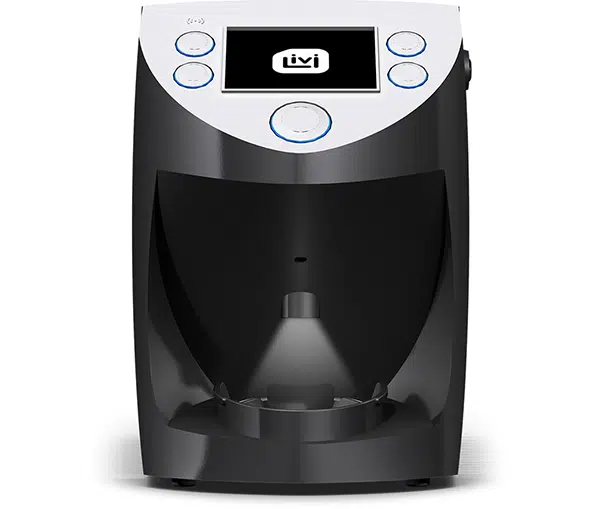 Livi Livi | 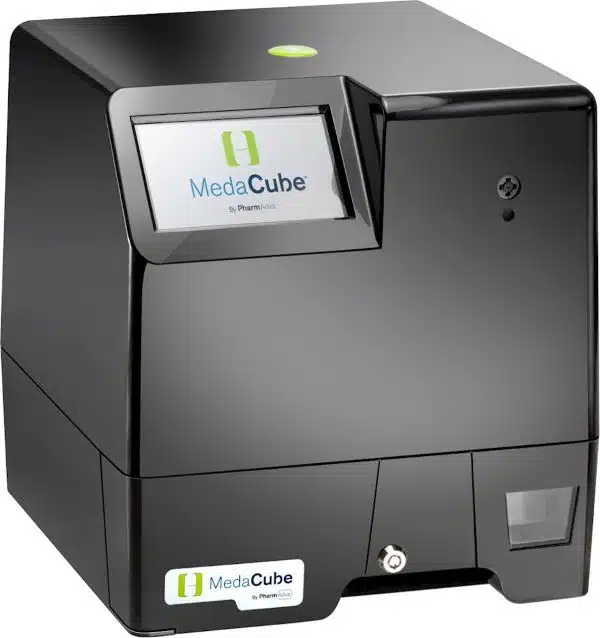 Medacube Medacube | 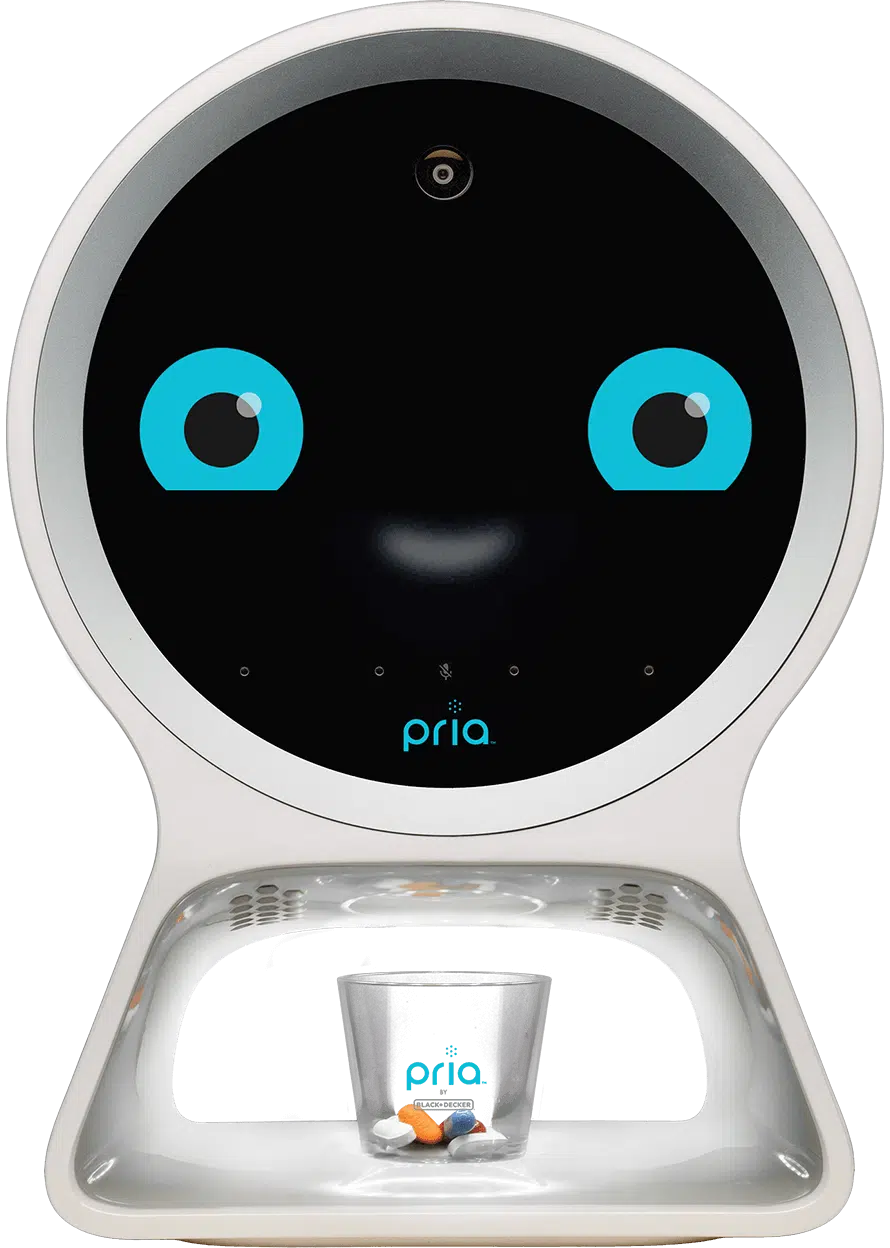 Pria Pria | |
|---|---|---|---|---|---|---|
| Days worth of medication | 28 days | 28 days | 28 days | 90 days | 90 days | 28 days |
| No upfront cost | ||||||
| Subscription required | ||||||
| Connection to health response call centre | ||||||
| Cellular connection | ||||||
| Battery backup | ; battery-only | |||||
| Small, comfortable device size | ||||||
| Medications are locked | optional |
Lifeline’s Medready Automatic Medication Dispenser
Lifeline’s Medready Automatic Medication Dispenser is a simple, affordable solution for better medication management. It helps users avoid medication errors and live independently, with fewer medication-related hospitalizations.
The Medready dispenser is easy to use, dispensing pre-loaded medications on a schedule. Users press the compartment open to receive their medication. Caregivers get peace of mind as Lifeline’s response centre monitors the dispenser. They will receive an SMS text or email alert if their loved one misses a dose.
Lifeline MedReady Pros and Cons:
PROS
CONS
Med-E-Lert
Med-E-Lert offers one to six daily doses with 28 slots in this automated medication dispenser. It’s a simple, battery-operated device with a flat rate (no monthly) cost and allows customized dosing combinations and programmable alerts for when medication is due.
The device automatically unlocks the medication compartment when the medication is due. This concept is one of the most basic options on the market, with no cellular or wifi connections and no automated connections to a response centre.
Med-E-Lert Pros and Cons:
Medminder
Medminder’s automatic dispenser looks like a typical 28-day pill dispenser but combines wireless technology for enhanced safety features and connectivity. It’s a bit more complex in its setup than other automated options but is generally simple on the user end once filled.
Medminder offers a central computer that caregivers can access to check on a patient’s dosage activity. Caregivers can receive email or text notifications about dosage, as well as weekly reports.
When used at home, Medminder doesn’t require patients to have wifi or cellular technology, but they must have electricity. The built-in micro cell phone connects with Medminder’s monitoring technology.
Medminder Smart Pill Box Pros and Cons:
Livi
The Livi Smart Pill Dispenser simplifies managing multiple medications for caregivers and patients. It has a simple reminder and dispensing system – a green button lights up, and the user pushes it to release the medication.
This device allows up to 15 pills, multiple times daily or as needed. It’s a flexible option for those whose mediation needs may grow or fluctuate. Caregivers and loved ones can receive text messages when medications are taken or missed.
Livi is also available at scale for pharmacy or home care organizations.
Livi Pros and Cons:
Medacube
Medacube allows up to 16 different medications and is another large-capacity option, holding a 90-day supply. It doesn’t require assembly or pre-sorting of pills.
Medacube alerts patients when their dosage is ready and will send a text or email reminders for missed doses. It allows caregivers to get real-time medication usage information while allowing the patient to remain independent.
Medacube Pros and Cons:
Pria
Pria is a smart, automated medication dispenser that helps patients to stick with their medication schedule. It alerts the patient’s care circle if they miss a dose.
Pria includes an app to connect caregivers and patients and has two-way video calls or chats among its features. This automatic pill dispenser is one of the most high-tech options.
Pria Pros and Cons:
What to Consider in an Automatic Pill Dispenser
Here are some points you might want to consider when choosing an automatic dispenser:
The Type of Medication It Can Store
Does the dispenser have the storage capacity for all the patient’s medications?
Lifestyle
Does the dispenser suit the situation of the user and the caregiver? Consider who is filling the dispenser and who is the end user. For example, some options may be too complex or feature-rich for some users.
Health
Factors such as cognition, visual impairment, and any physical or mobility issues can be a factor. For example, some dispensers have small screens that may be difficult for anyone with visual impairments to operate.
Budget
Look into what you’re getting for your money. For example, some dispensers require one upfront payment. Others have no upfront payment but have a monthly subscription, while other dispensers may have both an upfront payment and a monthly subscription.
Response Centre and Customer Service
How easy is it for caregivers or patients to get help? Does the device offer a connection to a response centre?
Conclusion
Automated medication dispensers can make a real difference for patients and caregivers. They help to mitigate medication errors or missed doses while giving caregivers peace of mind that patients are getting their medication.
There are many options for Canadians looking for an automated medication dispenser, with a wide range between simple and more feature-rich technologies. We suggest starting by making a list of your must-have features and determining your budget. You can use these to help narrow down your options.
The Last Word
Medical alert systems provide safety and independence to older adults who are vulnerable to medical emergencies, and peace of mind to their family members and friends. However, there are many providers in the Canadian market and they are all different in some way. It’s important to make sure you choose the right one for your needs.
All of the providers reviewed in this article are worthy of your consideration and we have tried to summarize the pros and cons of each. In our opinion, Lifeline is the best choice for most people. Lifeline’s experience; their dependable, senior-friendly and well-designed products; their warm, caring customer care; and the value they provide make them a solid recommendation.

